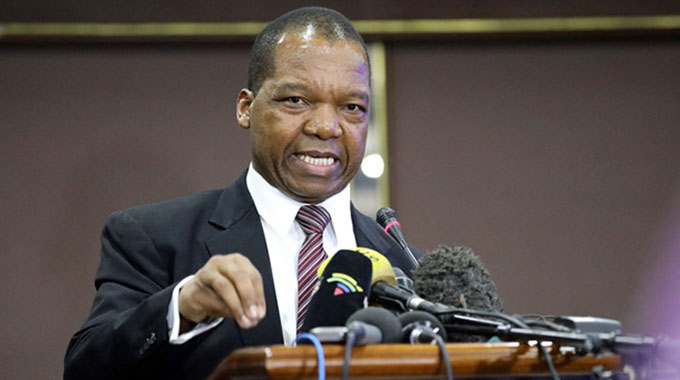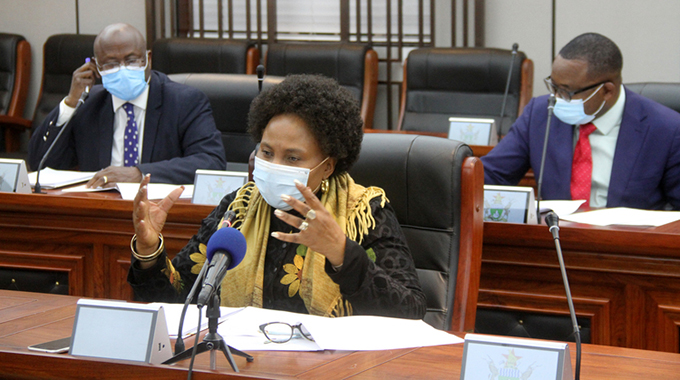‘Auction system should stabilise rates, inflation’

Golden Sibanda and Elita Chikwati
The new foreign exchange auction system should stabilise the exchange rate, restore orderly pricing and slow down runaway inflation, the Reserve Bank of Zimbabwe (RBZ) said yesterday, while farmers believe the proper market-driven rate restores viability.
Both RBZ and farmers are hoping the auctions will produce stability, and that suppliers will now switch to the real market-driven auction rate, so that earnings and supply prices are in sync.
RBZ Governor Dr John Mangudya said in an interview that monetary authorities were happy with way the new forex auctions, to be held weekly on Tuesdays, had turned out describing the first as “super transparent”.
Among key objectives monetary authorities are seeking to achieve, he said, were restoring confidence in the forex market, stabilising the Zimbabwe dollar, stimulating production for self-sufficiency and stabilising prices.
Coupled with the auctions is the RBZ’s determination to enforce the 30-day rule, that exporters must use their retained export earnings or sell within the same time frame to their bank at the latest auction rate.
Dr Mangudya stressed that Zimbabwe had sufficient inflows of US dollars running into hundreds of millions of US dollars to sustain its import requirements, suggesting the root of problems in the economy had been the absence of an efficient distribution system.
By late last year after a set of fiscal and monetary reforms, Zimbabwe had moved into a positive balance of trade, with exports exceeding imports for the first time in decades, but importers found it hard to access those export earnings.
The inaugural forex auction saw 91 percent of the 92 bids worth US$11,4 million that were presented by banks fully allotted and funded to the tune of US$10,4 million. The highest bid was $100 to US$1 and the lowest $25.5 0to US$1, giving a weighted average of $57.30.
Most of the bids at the debut auction were spread between $85 to US$1 and $25.40 to US$1 and the expectation is that the rates will continue to average within these lower band after only two bids, $100 to US$1 and 90 to US$1 were higher.
Dr Mangudya noted that businesses had been using the black market rates, hitting consumers hard, although they were not buying at those rates.
“The first thing is that we do not expect the exchange rate to continue to go up because there is now a formal market for foreign exchange. So if you were selling products using $100 to US$1, the market now says $57 to US$1 and it means and you cannot increase your price to $102 to US$1, that is common sense,” Dr Mangudya said.
Amid absence of systematic price determination, Dr Mangudya said, expectation of higher rates was caused by lack of a market price with most of the inflation being driven by forward pricing system, which used exchange rates higher than the average.
“At best now, business should hold prices for until next week,while you go again to the auction to look for foreign currency required for your business at $57 to US$1 or whatever rate is going to be. It means with exchange rate stability we are going to flatten inflation carve,” he said.
Dr Mangudya said because the rate that was determined at the auction, being the average, was lower than most of the exchange rates being used by businesses.
He said prevailing rates where “all guess work arrived not out of systematic analysis of the pricing prompting businesses to use forward pricing to hedge against the depreciation currency and taking positions as they did not know where the rate was going.
But since the market had spoken and the bank implemented what the market had requested, Dr Mangudya said bids that were prevailing in the domestic market demonstrated a lack of knowledge about how foreign currency is priced, “what we call impact information”.
Importantly, the governor said stability and market exchange rate would restore predictability, similar to certainty that characterised a US dollar dominated multi-currency years.
“The most important thing that any business needs, whether it’s banking, running grocery shop or manufacturing company, what is required is predictability, it is about stability,” he said.
Dr Mangudya stressed the point that has been on the lips of many an observer, fears that authorities would interfere with the market system to ensure preferred low rate.
The RBZ chief said the country had healthy inflows of foreign currency.
“The auction was super transparent and we want to continue with this auction on a transparent basis. We do not want any abuse of this ‘super transparent system’ because we benefit nothing out of that since the market has spoken,” he said.
“The money is there in the market and sources we normally deal with. It’s about efficient use of resources; we have more than US$900 million sitting in FCA accounts.
“We need US$80 million to US$100 million a month for the businesses in this country excluding fuel. So, US$80 million to US$100 million includes those with their own foreign currency. So we need to ask, what is the deficit from those without forex?”
The agriculture sector has welcomed the implementation of the foreign currency auction system which they said will enable them to realise value for their money, with tobacco farmers, calling for the adjustment of payments for those that had already sold their crop at the rate 1:25.
Farmers, especially those in the tobacco sector, had been imploring authorities to review the foreign currency exchange rate upwards.
Zimbabwe Farmers Union director, Mr Paul Zakariya yesterday said the implementation of the auction was positive for the agriculture sector, mainly for tobacco farmers.
“A point to note is that the component that tobacco producers are paid in the local currency will move upwards by slightly above 100 percent. This is a positive move although attention still needs to be given to the indiscipline that continues to manifest in the market place. Echoing Dr Mangudya, he said suppliers now needed to use the real auction rate.
Mr Zakariya said there was need to look at producer prices of agricultural commodities to ensure viability.
Zimbabwe Tobacco Association chief executive Mr Rodney Ambrose also noted the problem of suppliers using a higher rate than the auction rate, but said the gap was a lot narrower.
“For tobacco farmers, now at the peak of their deliveries a bi-weekly auction would be preferred. A weekly rate, could result in speculation with farmers delivering only on days after the auction and withholding on days prior to the day of auction. We hope that key inputs and capital equipment suppliers were able to access a significant portion of their requirements from the auction system, as this will lower the required re-tooling rate,” he said.
Tobacco Association of Zimbabwe president, Mr George Seremwe, said the forex auction was a good development, but felt there was need for some adjustments to protect value for smallholder farmers.
“The season is around 70 percent complete and most of our farmers have already sold their crop at the previous exchange rates. Those conditions posed a threat to viability of operations for these farmers. We appreciate the new auction system rewards farmers by offering better prices, but as the season is now almost over, many of our farmers find themselves facing viability challenges. If this trend continues, there may be less production in future seasons particularly that of smallholder farmers,” he said.
TAZ has written to the Reserve Bank of Zimbabwe to backdate new exchange rate and give farmers who sold at the $25:US$1 rate a supplementary payment.
“This will cushion those who have already sold their crop and may not benefit from the new system. In addition, we have been proposing the increase of the foreign currency retention thresholds for farmers so that the industry remains attractive. This will allow more smallholder farmers to remain in business and new ones will enter,” he said.
Zimbabwe National Farmers Union vice president Mr Edward Dune said the new system was going to bring relief to most farmers, but pleaded with authorities to explore ways of assisting tobacco growers who had already sold at the lower fixed rate.
He called on authorities to eliminate the parallel market for forex as this was causing price distortions.
Tobacco industry and Marketing Board chief executive, Dr Andrew Matibiri said initial indications were that farmers were happy with the foreign currency auction system, but urged authorities to consider the plight of tobacco growers who had sold at the old rate.
“The initial impression is that it’s very welcome because farmers will get the real value for tobacco, but of concern is that the rate remains for the whole week. We are worried that farmers may deliver after the auction days only. We have channelled our concerns on those who had sold using the $25:US$1 rate for consideration by responsible authorities,” he said.









Comments